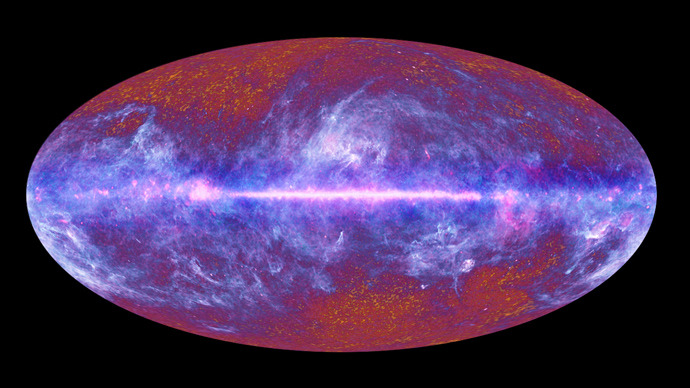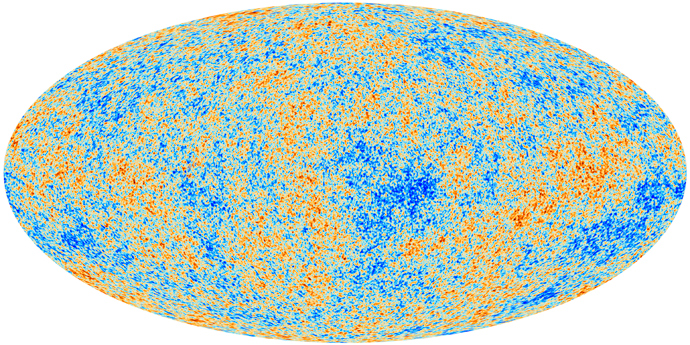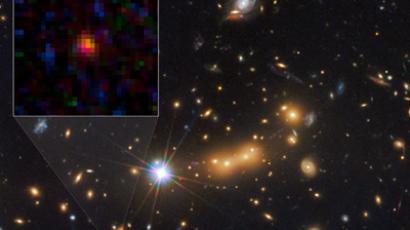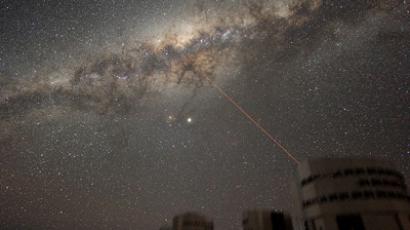Big Bang in HD: Astronomers map universe origin

The most detailed map yet of the afterglow of the Big Bang has been revealed by the European Space Agency (ESA). The cosmological chart has shed further light on when exactly the universe began, what it is made of and where it is going.
The 50-million pixel image, which gives a glimpse of the
universe soon after the Big Bang, was created with data captured by
the ESA’s Plank space telescope.
"This is a giant leap in the understanding of the origins of the
universe," the agency's director-general Jean-Jacques Dordain
told a press conference in Paris.
"What we are seeing is a picture of the microwave sky, a picture
of the universe as it was 380,000 years after the Big Bang,"
George Efstathiou, director of the Kavli Institute for Cosmology at
the University of Cambridge, told reporters.
The Planck craft has determined that the age of the universe is
precisely 13.82 billion years old – 80 million years older than
previous estimates. The ESA has also discovered that the universe
is expanding at a slightly more leisurely pace than previously
believed.
Information obtained from the satellite has further revealed that
the composition of the cosmos entails slightly more ordinary matter
than once believed – 4.9 per cent as opposed to 4.6 – and slightly
less of the hypothetical dark energy that pervades all of space –
68.3 per cent compared to 71.

There is also a bit more of the non-light-emitting or -absorbing dark matter, which makes up a sizeable chunk of the cosmos – 26.8 per cent rather than 24 per cent.
The findings released Thursday bolster a key theory called inflation, which posits that the universe erupted at warp speed from subatomic size to its now-observable expanse in a fraction of a second.
Launched in May 2009, the US$900 million satellite mapped the heavens by studying the uniform, cosmic microwave background radiation (CMB) which permeates the entire universe.
"This cosmic microwave background [CMB] shows tiny temperature fluctuations that correspond to regions of slightly different densities at very early times, representing the seeds of all future structure: the stars and galaxies of today," the ESA said in a statement.
In line with inflationary models of the universe, CMB was emitted some 380,000 years after the big bang, when the universe was a cooling cauldron of protons, electrons and photons. As the universal thermostat dropped to below 2,700 degrees Celsius, protons and electrons joined to form hydrogen atoms, releasing light in the process.
"Planck has produced the most precise picture of the CMB ever obtained," Astronomy Now cites Professor George Efstathiou of the University of Cambridge as saying at an ESA press conference on Thursday.
"It's a goldmine of information. If you are wondering what
the importance of this is, some cosmologists might have given up
their children to get their hands on this map!"














